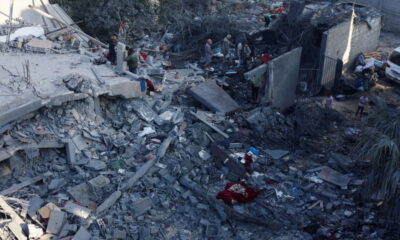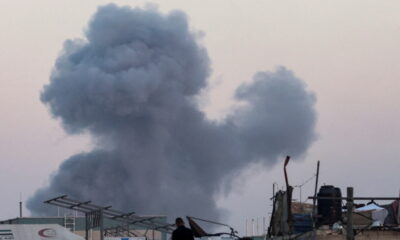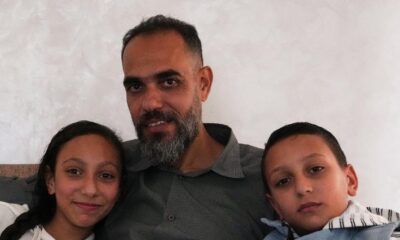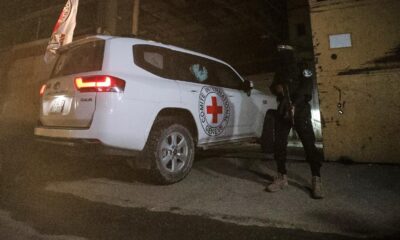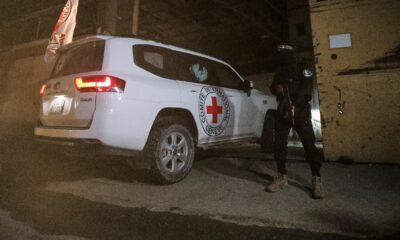Business
Jordan’s Tourism Struggles Amid Ongoing Regional Conflict
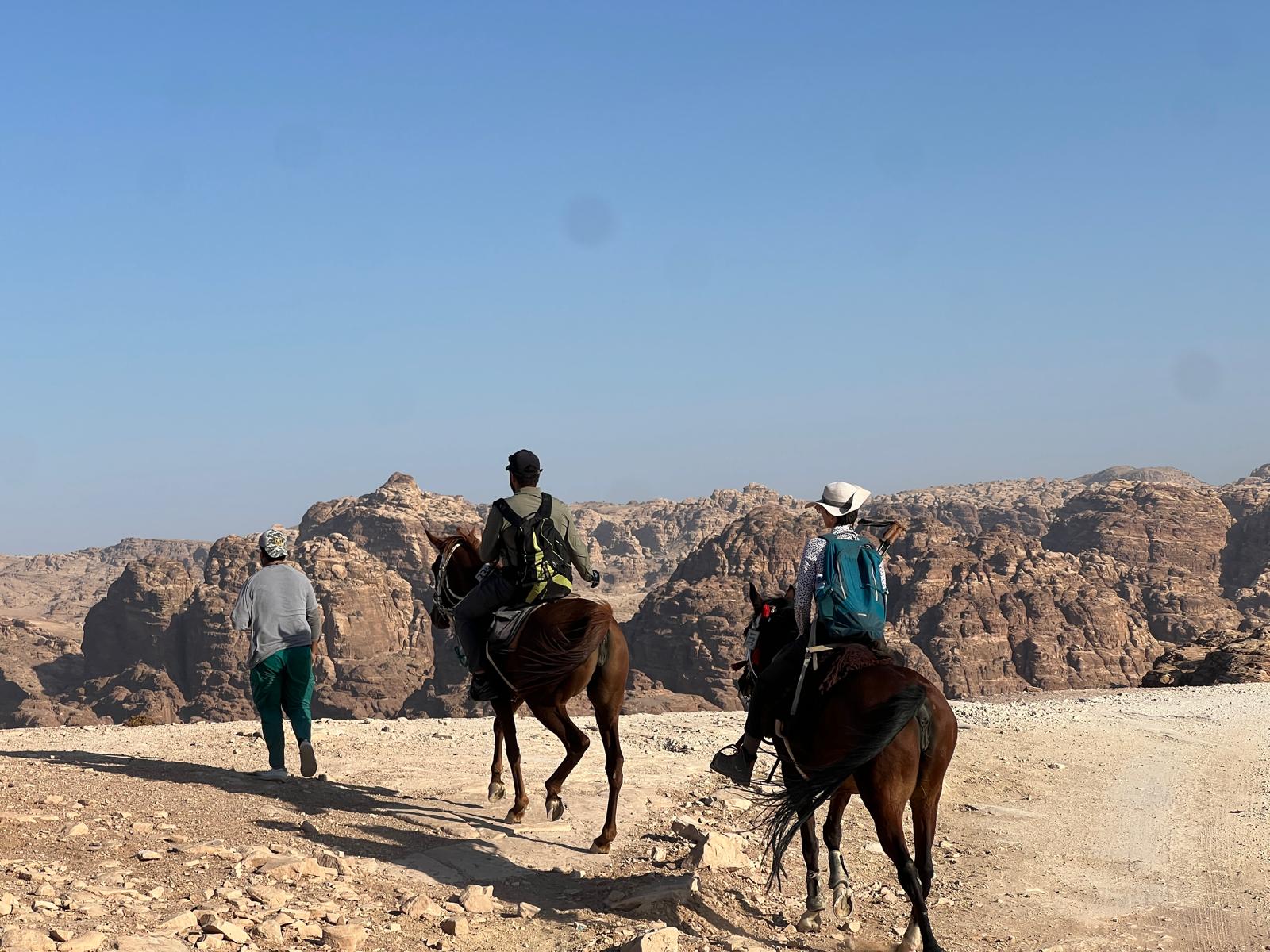
In the ancient city of Petra, Jordan, the tourism industry faces significant challenges due to the ongoing conflict in nearby Gaza. Archaeologists are currently engaged in the meticulous task of moving and measuring 2,000-year-old blocks of carved stone, surrounded by the stunning facades of the once-thriving Nabatean civilization. Despite being peak tourist season, visitor numbers have plummeted, leaving local businesses struggling.
Local horse owner Omar Al-Hlalat expressed his concerns, stating, “The tourist, he’s not coming to Jordan here. He’s scared of Jordan, but Jordan is very safe.” Al-Hlalat, a father of four, used to welcome three customers a day but now sees only one every two weeks. His reliance on tourism underscores the broader economic impact of the conflict, which has devastated the livelihoods of many in the region.
The situation in Petra worsened after the Gaza conflict escalated, which led to the closure of at least 35 hotels in the nearby town of Wadi Musa last year. As Hashem Nawafleh, a freelance tour guide, pointed out, “Ninety percent of the area’s income is from tourism, and there are no other options for small operators like Al-Hlalat.” Many locals have taken out bank loans to weather the downturn but now find themselves unable to repay them.
Tourism in Jordan experienced a surge after Petra was named one of the Seven New Wonders of the World in 2007. However, nearly two decades of regional conflict and the impact of the COVID-19 pandemic have strained growth. With the recent conflict, many potential visitors have cancelled their trips, mistakenly associating Jordan with the violence occurring in Gaza. Nawafleh commented on this misunderstanding, noting, “When they watch the news and see people fighting in Gaza or Israel, they think that all the region is the same.”
The impact of the conflict extends beyond just tourism. Hamad Hamad al Manajih, a traditional Bedouin guide, lives a nomadic life with his family but has also felt the economic strain. He relies on his flock of sheep and seven camels for income, but with fewer tourists, the demand for meat has declined. Al Manajih’s annual income, which previously reached around 6,000 Jordanian dinars (approximately NZD$15,000), has fallen to less than 3,000 JDs. This reduction affects his family’s ability to afford necessities like clothes and educational supplies.
In response to these challenges, the Jordanian government has reintroduced a subsidy program for local tourism, called “Our Jordan is Heaven.” This initiative aims to reduce tour costs to 20 percent of their usual prices. Nawafleh acknowledged that while this assistance is a step in the right direction, it may not be enough to sustain those heavily reliant on tourism.
Despite these hardships, Nawafleh remains optimistic. He dreams of opening a travel agency that showcases the real beauty of Jordan, beyond Petra. “I wish to show people the beauty of my country—not only Petra but also the desert, mountains, and the Bedouin culture,” he said. His vision reflects a desire to share the authentic experiences of Jordan, hoping to attract visitors once again as the country navigates the challenges brought on by regional conflicts.
-

 Sports2 months ago
Sports2 months agoNetball New Zealand Stands Down Dame Noeline Taurua for Series
-

 Entertainment2 months ago
Entertainment2 months agoTributes Pour In for Lachlan Rofe, Reality Star, Dead at 47
-

 Entertainment4 weeks ago
Entertainment4 weeks agoNew ‘Maverick’ Chaser Joins Beat the Chasers Season Finale
-

 Sports5 days ago
Sports5 days agoEli Katoa Rushed to Hospital After Sideline Incident During Match
-

 Sports2 months ago
Sports2 months agoSilver Ferns Legend Laura Langman Criticizes Team’s Attitude
-

 Politics1 month ago
Politics1 month agoNetball NZ Calls for Respect Amid Dame Taurua’s Standoff
-

 Entertainment2 months ago
Entertainment2 months agoKhloe Kardashian Embraces Innovative Stem Cell Therapy in Mexico
-

 Sports3 days ago
Sports3 days agoJamie Melham Triumphs Over Husband Ben in Melbourne Cup Victory
-

 World3 months ago
World3 months agoPolice Arrest Multiple Individuals During Funeral for Zain Taikato-Fox
-

 Sports3 months ago
Sports3 months agoGaël Monfils Set to Defend ASB Classic Title in January 2026
-

 Entertainment1 month ago
Entertainment1 month agoTyson Fury’s Daughter Venezuela Gets Engaged at Birthday Bash
-

 Sports1 month ago
Sports1 month agoHeather McMahan Steps Down as Ryder Cup Host After Controversy

